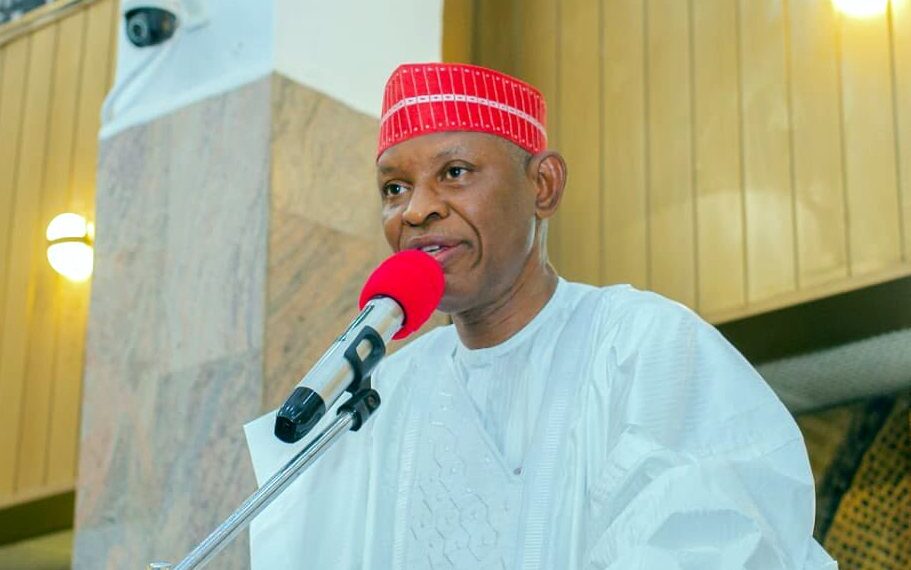Taxation: Banks Ready To Produce Customers’ Information To FG


The Deposit Money Banks in the country are about installing the rights technologies that will help in the supply of the information of wealthy customers and other taxpayers to the Federal Government under the Common Reporting Standard programme signed up by Nigeria to last August.
The CRS, an automatic exchange of information programme, is being driven by the Organisation for Economic Co-operation and Development, an intergovernmental body with 35 member countries.
The CRS, which is similar to the United States Foreign Account Tax Compliance Act, promotes sharing of information across borders
The Federal Government has also signed up to the Beneficial Ownership Register with the United Kingdom for the purpose of driving the Voluntary Asset and Income Declaration Scheme.
The Federal Government has already directed the DMBs to release information on the income and assets of their customers, especially those of over 12,000 high net worth individuals, who are either not paying taxes or have been underpaying.
This is in preparation for the government’s plan to enforce compliance by prosecuting the high net worth individuals who fail to settle their tax liabilities or commit to the gradual payment after the expiration of the tax amnesty on March 31.
The Federal Government’s nine-month tax amnesty under the VAIDS will expire in less than two months.
The Federal Inland Revenue Service and the tax authorities of the 36 states under Joint Tax Board launched the VAIDS on July 1, 2017.
The scheme is a nine-month tax amnesty given to every Nigerian, especially the high net worth individuals, to enable them to declare their assets and incomes and get certain waivers, including penalties and interest payments.
As the VAIDS expires on March 31 this year, banks are said to be working on the technology that will enable them to submit the required data to the tax authorities.
Findings showed that although the banks were making progress on the technology, it would take some time to perfect and submit taxpayers’ information to the government in line with the CRS programme.
The information is expected to be shared with other countries, which in turn will make available details of accounts and assets held by Nigerians in them.
This is preparatory to the Federal Government’s plan to prosecute defaulting taxpayers, especially the over 12,000 high net worth individuals scattered across Lagos, Abuja, Port Harcourt and other parts of the country, who have failed to take advantage of the scheme.
A partner, Tax and Regulatory Services, PricewaterhouseCoopers Nigeria, Esiri Agbeyi, said the government had discovered that many Nigerians were not in the tax net.
According to Agbeyi, government’s findings have shown that many of the high net worth individuals, including those who have expensive assets within and outside the country, are either not paying their taxes or paying far less than what they should be paying.
As a result, the PwC partner stated that the Federal Government was committed to implementing VAIDS to the letter.
She dropped the hint at a breakfast meeting organised by Ecobank Nigeria in Lagos on Friday, adding, “Nigeria’s tax to Gross Domestic Product ratio is currently at six per cent and the government is committed to taking it to 15 per cent. Statistics have shown that not so many people are in the tax base and many of the HNIs are not paying taxes or are paying less.
“The Federal Government has therefore directed that every taxpayer’s information must be collected by the banks and submitted to the tax authority.”
Agbeyi said the information being obtained by the Federal Government would be used to drive the VAIDS.
She stated that the Federal Government signed information exchange agreements with the United Kingdom last August and many other countries such as Ghana, to enable it to trace details of Nigerians’ funds and assets in foreign countries.
“The government is getting all these in place to drive the VAIDS. With all these in place, the government can then go after those who fail to take advantage of the tax amnesty,” Agbeyi added.
This is said to be similar to the US Foreign Account Tax Compliance Act. The US FATCA, which was passed as part of the HIRE Act, generally requires that foreign financial institutions and other non-financial foreign entities report the foreign assets held by their US accountholders or be subject to withholding tax.
According to reports, Nigeria has at least 12,000 high net worth individuals, the second highest in Africa, coming after South Africa, which has 40,000.
Of the over 12,000 high net worth individuals in Nigeria, over 6,800 are resident in Lagos, 4,000 in Abuja, while the remaining can be found in Port Harcourt and other states of the federation.
The Minister of Finance, Mrs. Kemi Adeosun, said the Federal Government was targeting about $1bn from the VAIDS before the March 31 deadline.
A professor of law specialising in taxation, Abiola Sanni, said tax amnesty had been used in several countries of the world to rake in billions of dollars in revenue for governments.
According to him, findings have shown that the government can get more in terms of tax revenue from the rich than from the poor.
Sanni said, “The informal sector is important and the government is already working on that. The truth is that the government can get more from the rich through a tax amnesty programme like the VAIDS.
“Tax amnesty has worked in many countries. Given our situation in Nigeria, tax amnesty will help the government to improve tax compliance and get more revenue to fund the budget.”
The Federal Government has confirmed that some foreign countries, including the UK, have commenced the Automatic Exchange of Tax Information, particularly on overseas assets held by Nigerians.
Adeosun gave this indication during the presentation of the Progress Report on Tax Laws Reform by the Vice Chairman of the National Tax Policy Implementation Committee, Mr. Taiwo Oyedele, in Abuja on Friday.
The minister expressed satisfaction with the data being supplied to Nigeria by foreign countries under the AETI, to which the country became a party in January this year.
She stated that Nigeria had written to a number of nations to request specific information about offshore trust and bank accounts held by its citizens.
The minister advised users of offshore structures to take advantage of the VAIDS to regularise their taxes before the expiry of the amnesty programme.
Adesoun said, “The offshore tax shelter system is basically over. Those who have hidden money overseas are being exposed and while Nigerians can legally keep their money anywhere in the world, they must first pay taxes due to the Nigerian government so that we can fund the needs of the masses and create jobs and wealth for our people.
“The moral argument against illicit financial flows and tax evasion and the strong international cooperation are such that every Nigerian taxpayer should do the right thing. The needs of our people for development override any other argument against payment of tax.”











1 Comment
Not being able to discard dual citizenship with USA does not mean that one is one of those 12’000 high net worth individuals. Why does FATCA need to criminally harm the poor with discrimination simply because of their place of birth?